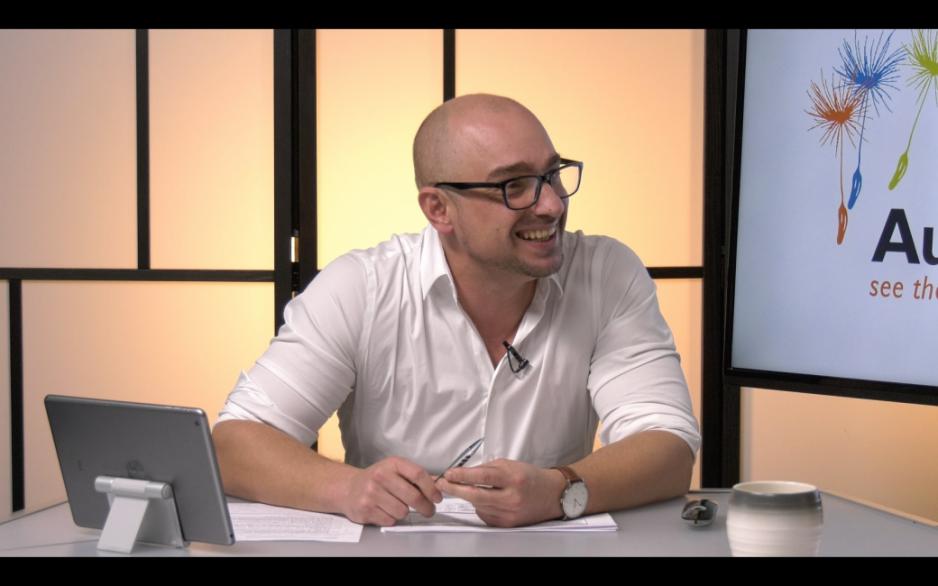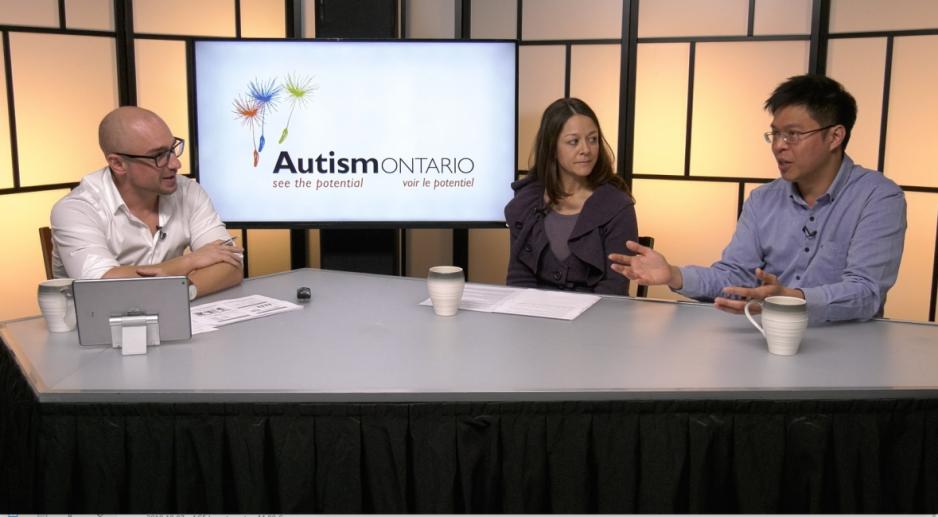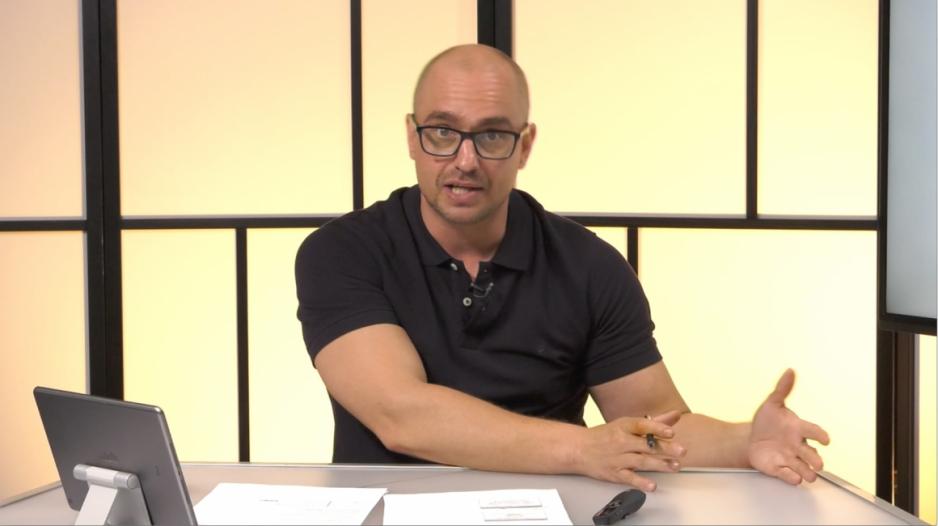12 Months of Stories
In our 46-year history, we are proud of the positive impact our staff, volunteers, advocacy, and programming have had on people on the autism spectrum, their families, and the general community. Through the generosity of our donors, we have the capacity to help families connect and access services across the province, as well as advocate for meaningful supports, services, and a system ready to help people on the spectrum across their lifespan.
We asked the people who work with us why they believe in Autism Ontario. Here are their stories.
Meet Matt Ley. Matt is the President and Co-Founder of The Streaming Network and has been hosting our webinars for the past six years. This is his Autism Ontario Story:
I started working with Autism Ontario six years ago when they were looking for webinar streaming and hosting services. My company offered their streaming services and I offered to host.
At the time, I knew very little; I knew the word, “autism,” but I didn’t know much about it. During my first year hosting their webinars, I learned a lot of the complexities around the topic and when it came around to the second year, I knew I had to keep doing this for them.
It was in my second year working with Autism Ontario that I witnessed, in person, how important their work is. That year, my sister’s son was diagnosed with autism and she was floundering; she didn’t know how to get information.
I directed her to Autism Ontario’s website, and her response was, “I can’t believe all this is out there!” Building on what I already knew, and seeing how this information helped her and my nephew, I realized that autism and Autism Ontario were things I had become passionate about, and without thinking, had started trumpeting as a cause.
Now, four years later, I really feel I’m a part of it, no matter what.
If I sold The Streaming Network tomorrow and retired, I would still host webinars for Autism Ontario because I know there’s more work to do.
There are still too many people who don’t understand what autism is, especially people of my generation and older. I’m
40 years old, and autism “didn’t really exist” when we were in school, and I still hear some very obtuse things about autism from people that I consider intelligent. Autism Ontario has made it part of their mission to educate all of Ontario about what autism means for a child and for a family, and their website is where people can dip their toes in the water to start learning, and then dive if they want to know more.
Over the last six years, the topics of the webinars I host with Autism Ontario have expanded and gone deeper into some of the more complex and adult issues, as well as deeper into new science as it comes out. Parents, educators, and healthcare providers are more informed than ever; what people are looking for now, and what they need, is an even deeper understanding.
But it’s hard for people to reach that understanding without proper tools. There unfortunately aren’t a lot of resources for people outside the GTA, and even in the GTA, there aren’t enough. With these webinars, we’re reaching the people across Ontario with few supports nearby and giving them deep insights from all over the world, and I’m honoured to be a part of that.
Autism Ontario’s webinars are important for people looking to wrap their arms around a specific topic.
They're for people who are really trying to educate themselves, especially healthcare providers and teachers. When people start researching any topic, what do we do? We pick up our phones and Google it, and then browse articles for highlights. When someone has gone past that stage and wants to dig deeper, our webinars are a great tool because in addition to our guest experts, we provide the chance for viewers to spend an hour with us, and people don’t often spend a whole hour with the same content.
With an hour of your time, you can hear about a topic from start to finish, and really sit there, as I do every time, and reflect on what you’re watching as you’re watching. (And if you look at the stats in the back end, people aren’t tuning out after five minutes; they’re all there for the whole time.)
Another thing I love about hosting Autism Ontario’s webinars is that viewers can ask questions and get answers from people they never had access to before, and may never be able to access again. The way we do it, paraphrasing questions that a lot of people have asked, more people feel heard and responded to on a personal level. Even if it’s not giving them all the answers, it’s giving them hope and pointing them in the right direction. I don’t know what people do after a webinar is over, but I believe viewers who got their own questions answered are empowered to learn and do more because they got those answers.
The biggest way Autism Ontario has impacted me is through everything I’ve learned hosting these webinars and meeting the assortment of guests.
In addition to learning more and more about autism and everything surrounding it, I also continue to learn a tremendous amount about being a parent.
I specifically remember an interview with Ross Greene, author of The Explosive Child, who talked about how behavioural problems are always the difference between expectations and skills. My son, though not diagnosed on the spectrum, had some self-regulation issues when he was growing up; he got upset very easily and cried a lot. My interview with Ross reiterated that no problem is surface level, and his content helped me understand what the root cause of my son’s outbursts might have been, and how I could have addressed it at the time.
My relationship with Autism Ontario is important to me because I am constantly learning new things, and as I continue to learn, the topic seems to get bigger and bigger and bigger, and it’s everywhere. The more you unravel any onion and get to its core, the more you realize there’s still so much work to do. Despite the increase of shared knowledge, the issues and complexities with government funding and resourcing aren't getting better. I feel like we were underdiagnosed five/six years ago when we started this, and now we might be at the right level of diagnosis in the province, but I don’t think there’s a proportional amount of help for that rise in diagnoses.
More people need to be aware of Autism Ontario and the work they do.
I don’t know how, when my sister walked into that specialist’s office with her son, she wasn’t immediately given a card that says, “Go to autismontario.com.” Nothing else, just “autismontario.com. Go there.” I don’t understand why that wasn’t the practice.
Anyone with questions about autism, anyone with a new diagnosis, the first place you should go is Autism Ontario, where there is a community of people across Ontario who are only here to help.
I’m excited to keep working with Autism Ontario and continue hosting their webinars for as long as I can.



